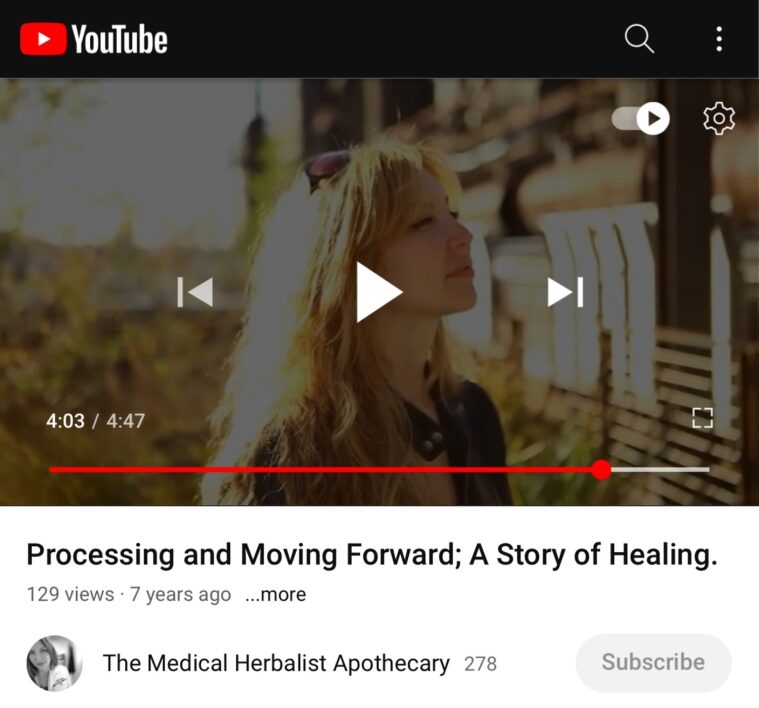As you know through our conversations, Hormone and Metabolic regulation in the body is directly controlled and managed through the Brain.
Brain Hormones are also referred to as Neurotransmitters, and — integral with the body’s Endocrine (body) Hormones — are the foundation of sustaining life and optimal function.
Let’s get down to brass tacks on how we fortify the Central Nervous System:
Proteins
Proteins break down into Amino Acids, and these provide the STRUCTURE of brain tissue.
Healthy Fats
Fats break down into Lipids, which fortify the Myelin Sheath covering of nerve cells, which acts to TRANSMIT nerve signals.
Carbohydrates
Carbohydrates break down into Glucose, which is the ENERGY FUEL upon which the brain functions. The brain EXCLUSIVELY uses glucose as its energy source.
We do not use Protein nor Fats directly for Thinking, Cognition or Memory processes; The brain exclusively functions on glucose, provided that the body has adequately nourished structure and nerve function.
We require ALL THREE food substrates of Protein, Fats, and Carbohydrates for Optimal Brain Health.
To Summarise, the Central Nervous System: FUNCTIONS on Glucose, is STRUCTURED through tissue-building amino acids (protein), CONDUCTS NERVE SIGNALS through nerve insulation from lipids (healthy fats), and is REGULATED through hormonal (neurotransmitter) controls.
Let’s further clarify: Any foodstuff that is not animal flesh or egg/dairy is some variation of a Carbohydrate. They can have a short-chain structure of carbon molecules (more simple) or long-chain (complex).
The longer the chain of carbon alongside variations in composition with Protein and Fats, the longer it takes to digest, breakdown, and enter the metabolic process for use.
Ideally, we consume more COMPLEX Carbohydrates with fibre (moderating simple starch or natural sugar-dominant) for longer periods of energy production.
As tolerated, nuts and seeds are rich sources of the healthy fats, fibre, vitamins and minerals for healthy nervous systems. However — alongside brain-nutritive value with moderated intake of whole ORGANIC grains — choices must be based most accurately upon Threshold Food Sensitivity Testing for avoiding inflammation and allergic reactivity*.
*While many foods are deemed “healthy”, we each find certain foods stoke variable elevations in IgG levels (inflammatory markers in the blood following ingestion), indicating inflammation and reactivity. These elevations require certain foods to be on a wider rotation into-and-out-of dietary frequency.
Complex Carbohydrates in nuts and seeds — for example — also contain proteins and healthy fats — which sustain a longer timeframe to digest, and so help sustain regulated Blood Sugar Levels whilst providing a range of brain-supportive nutrients.
Rather than steep blood sugar spikes and crashes associated with consumption of high starch and simple sugars, we seek Carbohydrates lower on the Glycemic Index and higher in complexity of food structure.
Wide variation of foods in the plant families are essential for consuming all 3 food substrates (proteins, fats, carbohydrates) — but also for nutrients and absorption co-factors/enzymes not found in animal-based foods.
There are a growing number of dietary trends that come and go for a variety of aims.
Aims for special diets may include (but not limited to):
Migraine Management,
Weight Management,
Mental Health stability,
Liver and Metabolic Syndromes,
Thyroid imbalance,
IBS or Digestive Issues,
Chronic Inflammation,
Autoimmune Flare-ups or Compromised Immune function,
Chronic Congestion, or
Food Sensitivity / Food Allergy management
In order to remedy an imbalance SPECIFICALLY of the Central Nervous System, we must first understand basic function and explore how to HEALTHFULLY adjust our daily choices to reach those aims. All the while, we must consider our Threshold Food Sensitivities and outright Food Allergies.
The complexity in determining adequate nourishment for each of us is profound! There is no cookie-cutter plan that can work for every person and their unique medical + genetic history.
Ultimately: Laundry lists of “helpful” foods and supplements suggested for any given aim will not always work for every body. Why?
EVEN IF INDIVIDUALS SHARE A SIMILAR IMBALANCE, precise dietary composition, timing of intake + therapeutic remedy combination will be unique to each individual, as a result of variations in Medical History, Concurrent Imbalances (chronic or acute), Age, Gender, and Food Sensitivities.
Some adjustments are only intended for short-term application for managing acute symptoms, since Restricted Diets can extraordinarily hamper adequate variety of nutrient intake for Brain Health.
Over the past 30+ years in practice, I have witnessed many dietary trends that can show promise in some aspects of health, yet, compromise true nourishment and fortification for other fundamental functions.
Sometimes, acute infections can trigger imbalances impacting the Nervous System regulation.
FOR EXAMPLE (this is not an exhaustive list; simply intended to demonstrate commonly reported after-effects):
Disrupted sleep habits following infections and related medication use can trigger:
- Onset of Anxiety, Insomnia, Fatigue, or difficulty with Concentration and Memory (“brain fog”),
- Disruption of Reproductive and Metabolic Hormones, impacting Menstrual Cycles and Menopausal Hormone fluctuations,
- Trigger Chronic Fatigue Syndrome symptoms, such as Fatigue, Joint Pain, Frequent Urination, Low Mood
- Hair Loss and Weight Gain despite regular exercise
- Heart rhythm changes
Restrictive Diets — combined with chronically disrupted Sleep Cycles — can contribute to Mood Swings, Mental Health instability, Hormonal Imbalances, and undermine treatments for Parkinson’s Disease or contribute to the progression of Dementia.
On a therapeutic dietary note, exotic mushrooms are showing tremendous benefits for nourishment of the brain and other body functions. Ideally, eaten as whole food, cooked with vegetables.
!!PLEASE NOTE: Certain mushrooms should not be taken daily for more than 2-3 weeks at a time, and requires periodic rest from intake. This includes Reishi mushroom, which can elevate liver enzymes if taken in high concentrations daily for extended periods of time. READ LABELS of all foods and powdered food concentrates you consume regularly.
Variety is the spice (and support!) of life — so ensure that powdered mushroom beverages and powdered food concentrates are pulsed on-and-off for periods of time.
In other words: Rotate through those preparations that contain foodstuffs like Reishi in phases so that you balance consumption through periodic intake.
This required approach with rotation holds true for many concentrated Medicinal Herbs, as well.
As you know if you work with me, we are regularly reformulating your preparations — as your body recalibrates, recovers, and evolves — but also because many plants require rotation in/out of use for safety and efficacy.
Rotation schedules vary based on specific plants, individual medical history, and concurrent medication use.
There are only a few Herbal Medicine concentrates which can access circulation within the Central Nervous System. We must be mindful of selection, as it relates to your own medical history — which is why I am always checking-in with my people for regular, HIGHLY DETAILED updates!
(It is also the reason why I do not often mention specific medicinal plants for use — since each and every concentrated extract has contraindications based on the individual! There’s no such thing as “one size suits all” in this regard, and its why I do not formulate for general retail use.)
We truly wade into the weeds when it comes to the subtle factors of imbalances, in the bigger picture!
Non-Consumable Brain Function Support
We have briefly touched upon the dietary and herbal medicine components to Brain Health. There are two essential lifestyle-focused measures, that must be mentioned.
Sleep Ritual
While we are horizontal during sleep, the fluid — known as Cerebrospinal Fluid — around our brains and spinal cord has a chance to circulate throughout the system.
It works alongside blood flow to carry nutrients into, and waste products away from the brain tissues. Waste products can be by-products of general metabolism, and/or as a result of infections by bacterium or viruses.
Why is this essential?
As our brains function through the day, normal waste products accumulate.
Infections can trigger inflammation in the brain, and inflammation generates increased waste production.
We do not efficiently cleanse these wastes while positionally upright and continuing to demand functionality from our Nervous System.
Certain Brain Waves during sleep allow the brain to function at a level that promotes this recovery process.
The best approach to adequate Sleep is through developing a Pre-Sleep Ritual that resonates for your own lifestyle and working around the habits of others in your home life.
Sleep Ritual Features
Many studies have emerged to reveal the benefits of various measures, which include:
– Red lights or low/warm-tone lights in the hour before bedtime,
– Setting mobile phones in another room or hallway outside the bedroom,
– Shutting down computer work at least 1-2 hours before bedtime (not easily done for many of us!),
– Consuming certain nerve-calming beverages,
– Sound Therapy: Playing Solfeggio tone, Frequency Tone (often found in Reiki or Meditation playlists), Binaural Beats, or ambient sound music and pink/green/brown noise,
– Bathing with unscented Epsom/Magnesium salt
(and so on.)
A Note on Sound Therapy: These options can be found online and through mobile music apps. If you plan to set your devices in another room to discipline yourself from autopilot use, you may need to use it while decompressing before you retire to the bedroom.
Alternatively, this may be a motivating factor to using a remote Bluetooth speaker accessory in the bedroom while the device remains away from easy reach.
At the very least, if you use your phone as an alarm clock, set it to Airplane Mode or disable Wi-Fi, and place it across the room before climbing into bed.
Move It!
Exercise helps to carry increased oxygen into the brain, which assists with focus, cognitive acuity, and general brain nourishment/waste movement.
Ideally, vigorous exercise is best between but not straight after full meals, so that we are not calling for the body to divert blood flow away from Digestion.
Light walking is known to help facilitate digestion, but low intensity may not have the same increase of blood flow to the brain as increased intensity sessions.
Rarely is there a singular “A-HA!” Culprit to compromised Brain Health. Enhancing Brain Function is complex and nuanced. Just like our fingerprints, the ideal approach to improvements is unique to each of us.








